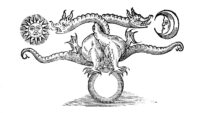No, this is not the first line of a Henny Youngman joke (if you don’t know who he was, Google him, the King of the one-liners), it’s an honest question. You see my wife is descended on both sides of her family from Puritans, one of whom came on the Mayflower. She’s traveled even farther back in time, and viewed the homes and histories of her English ancestors, their portraits, fame and fortune.
Anyway, she’s recently discovered that her eighth great grandmother (on her mother’s side) Rebecca Nurse was accused of witchcraft and put to trial while living in Salem, Massachusetts. She was at first exonerated. Then, under pressure from her accusers, the judge ordered a “reexamination” and, at the age of 70, she was hung by the neck. Rebecca Nurse’s real exoneration came in “The Crucible,” Arthur Miller’s play about the Salem Witch trials.
It’s hard for us today to imagine accusing a 70-year-old woman of witchcraft, let alone threatening to hang her or burn at the stake, but in Salem of 1692 there was lot of this going around. A trial would be held, witnesses brought and testimony given, the legal mumbo-jumbo of the time would be used and charges of witchcraft either proven or dis-proven.
Now in my wife’s family’s case things got a little weird. As I said, she comes from several lines of Puritans. On her mother’s side she is the eighth great grandchild of John Proctor, also accused of witchcraft and hung. On her father’s side, her seventh great grandmother was Alice Booth, one of Rebecca Nurse’s original 14-year-old accusers. Imagine the odds of that happening. On the other hand, it’s true there were not all that many Puritans in Salem in 1692.
Neither her mother nor her father, both now deceased, knew of this odd and one might even say cosmic connection. No doubt they both would have been amused. My wife’s father was a history professor and her mother was particularly pleased with her Puritan heritage of “temperance and moderation.”
My wife, with the aid of genealogy websites, has fleshed out so many of her relatives she generously looked into mine. Unfortunately, the record of my family line stops just four generations back, around 1890 when the first of us came to America from Russia. She did find a Mordechai, Hershel and Sadie I’d never heard of, which was kind of nice. No accused witches, though my late father described one of his grandmothers as a witch (or perhaps it was a word that rhymes).
The growth of genealogy websites is ironically, I’ve been told, fueled by interest in genealogy by the Mormons, one of the world’s more recent religions. The story I’ve been told is that if a Mormon discovers a previously unknown ancestor, that ancestor can be posthumously “baptized” into the Mormon Church as a member. If true, this might explain why it is called a fast-growing faith, but then it might not be true. Nonetheless, more historical records are being digitized every day. Census data, ship manifests, draft board files, old phone books. One never knows where the search will lead.
Anyway, I’ve lately been looking at my wife a little differently, watching what she does and how she does it. Just because her Great, Great, Great, Great, Great, Great, Great, Great Grandma was exonerated of witchcraft doesn’t mean she wasn’t guilty.





When facing trial in 1692, “thirty-two Ipswich men, headed by the minister, John Wise, signed a petition ‘on behalf of our neighbors John Proctor and his wife, now in trouble and under suspicion of witchcraft'” (B&N 202). The petition validates the character of John Proctor and his family. After receiving his sentence to die on Gallows Hill on August 19.1692, Proctor sought time to prepare for his death and secure the welfare of his estate for future generations.